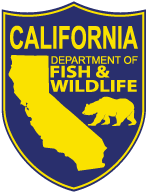The California Department of Fish and Wildlife (CDFW) is directing approximately $550,000 in grant funding to 45 nonprofit wildlife rehabilitation organizations to immediately support care for injured, sick and orphaned wildlife. The funds are made available from taxpayer contributions to the Native California Wildlife Rehabilitation Voluntary Tax Contribution Fund.
“California’s injured, sick and orphaned native wildlife need our help now more than ever,” said CDFW Director Charlton H. Bonham. “We are proud to quickly make funds available to help these important partner organizations operate during difficult economic times.”
In 2017, Assemblymember Marie Waldron’s Assembly Bill 1031 created the Native California Wildlife Rehabilitation Voluntary Tax Contribution Fund on the state’s income tax form, and thanks to taxpayers’ generosity, more than $820,000 has been donated as of October 2020.
“I am so pleased these organizations will receive the funding they desperately deserve,” Waldron said. “Without them, California’s wildlife would suffer, which would mean we all suffer. I’m honored to have played a role in conserving California’s abundant natural beauty.”
In 2019, these 45 organizations collectively cared for nearly 112,000 orphaned or injured wild animals, including bats, opossums, skunks, raptors, reptiles, foxes, songbirds, fawns, sea birds, coyotes, bears and many other native species.
CDFW acted swiftly to stand up the new competitive grant program to support and advance the recovery and rehabilitation of injured, sick or orphaned wildlife and conservation education. Funds may be used to support activities such as operations and ongoing facility needs, innovation in animal care (e.g., wildlife rehabilitation techniques, enclosure designs, diet and behavioral enrichment), post-release monitoring and conservation education for the public.
“The California wildlife rehabilitation community is incredibly grateful for this much-needed support,” said Rachel Avilla, president of the California Council for Wildlife Rehabilitators Board of Directors. “While 2020 has certainly taken its toll on many small organizations, our commitment to helping wildlife remains strong as injured and orphaned animals continue to need our help daily. We want to thank Assemblymember Waldron and her team for pushing this landmark legislation through and CDFW for being an excellent ally. We are profoundly grateful for their continued collaboration and support to help care for California’s precious wildlife.”
Consistent with the legislation, eligible organizations were required to document their status as a nonprofit organization that operates a permitted wildlife rehabilitation facility, complies with all conditions of its Wildlife Rehabilitation Memorandum of Understanding, and maintains active participation in the Wildlife Rehabilitation Medical Database.





